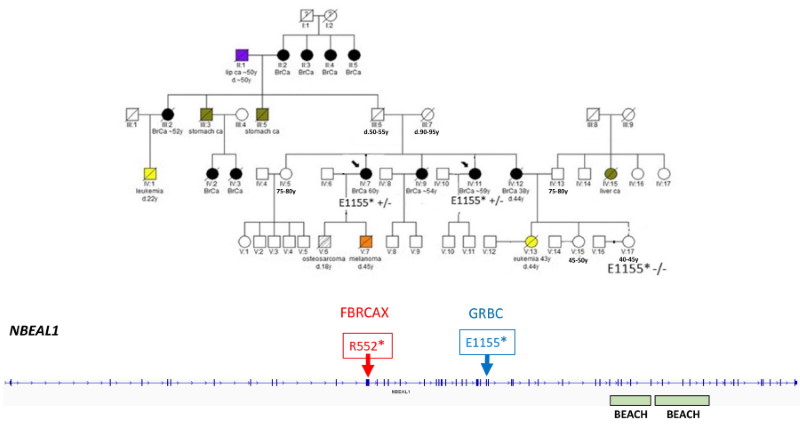06/11/2019
Glentis et al., from the Dimas lab, uncover genetic risk variants for hereditary breast cancer in the first exome sequencing study to be conducted in the Greek population. The authors carried out exome sequencing on BSRC Alexander Fleming’s in-house NGS platform, in patients with hereditary breast cancer of unknown genetic aetiology and in their informative relatives. Following candidate variant prioritization and examination in additional patient groups of European ancestry, the authors report candidate risk genes MDM1 and NBEAL1.
MDM1 is an evolutionary conserved gene encoding a protein that binds to and stabilizes microtubules. It localizes to centrioles and negatively regulates their duplication in dividing and in differentiating multi-ciliated cells. Pathogenic variants in genes involved in the centrosome formation have been linked to ciliopathies, a group of diseases with an established connection to inherited cancer syndromes. NBEAL1 encodes a protein that possesses two BEACH domains. BEACH domain-containing proteins (BDCPs) play a role in molecular mechanisms including vesicular transport, apoptosis and receptor signaling. Variants in BDCPs have been associated with diseases such as breast and prostate cancer, multiple myeloma, Chediak-Higashi Syndrome, and autism.
“These variants, detected in families from Greece, serve to enrich the catalogues of genetic risk variants that are scanned in hereditary breast cancer patients and their relatives.” says Dr Glentis. “As a result, findings of this type contribute to better and more precise diagnoses and improved genetic counselling.”
“Our findings bring us a step closer to precision medicine approaches” says Dr Dimas. “Furthermore, uncovering variants in genes with a role that has not yet been linked to cancer highlights new molecular mechanisms that lead to pathogenesis and therefore puts forth new targets for therapeutical agents."
Links
PMID: 31681433
PubMed link: https://www.ncbi.nlm.nih.gov/pubmed/31681433
Link to paper: https://www.frontiersin.org/articles/10.3389/fgene.2019.01005/full
